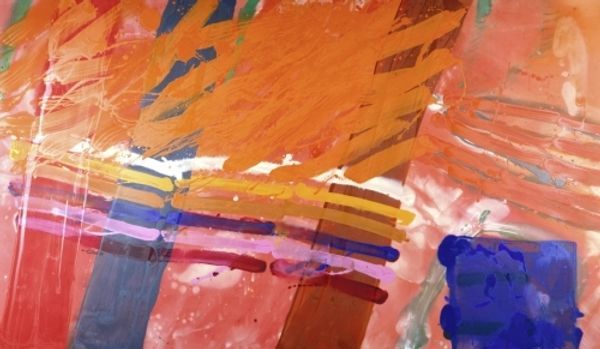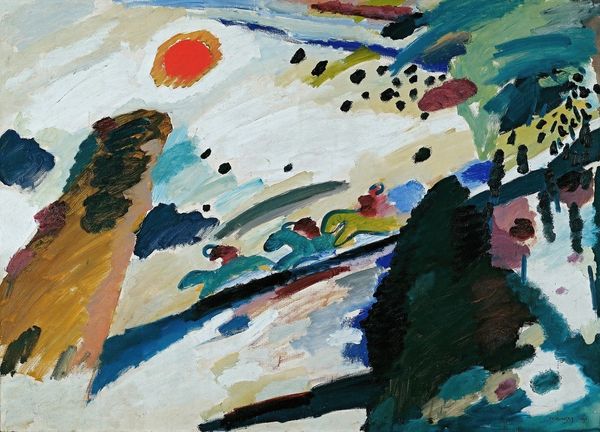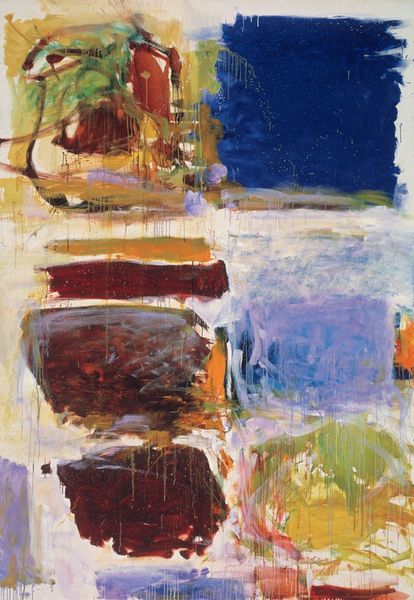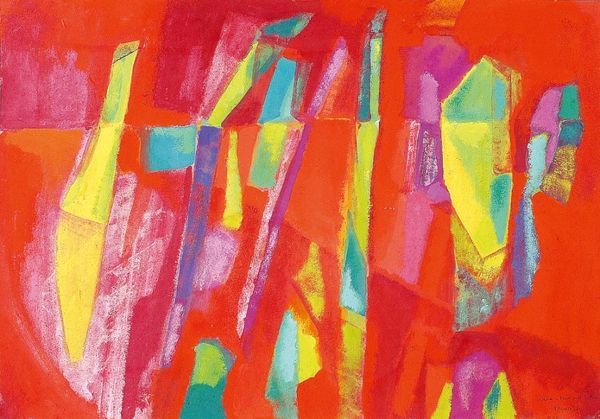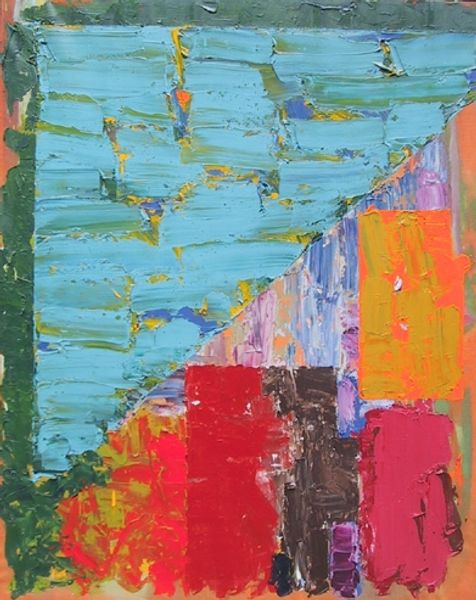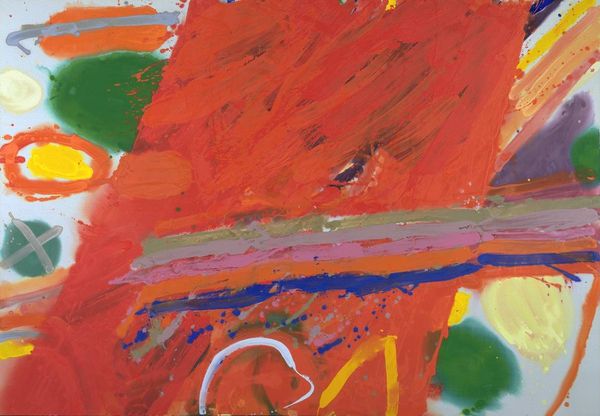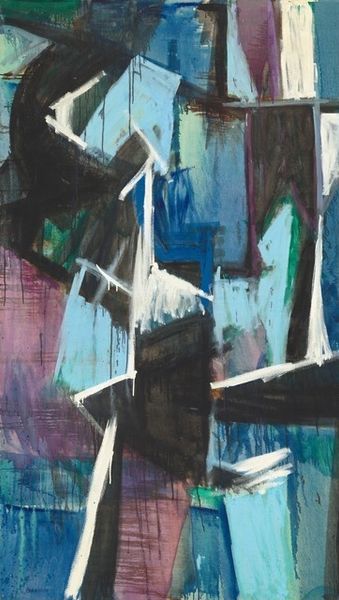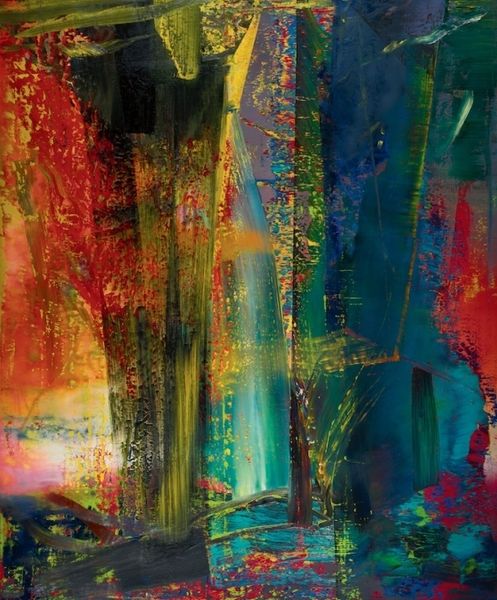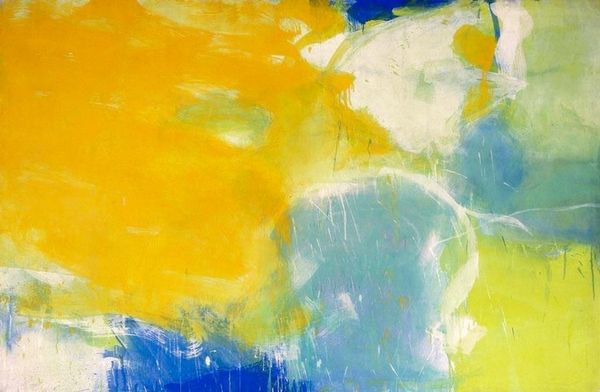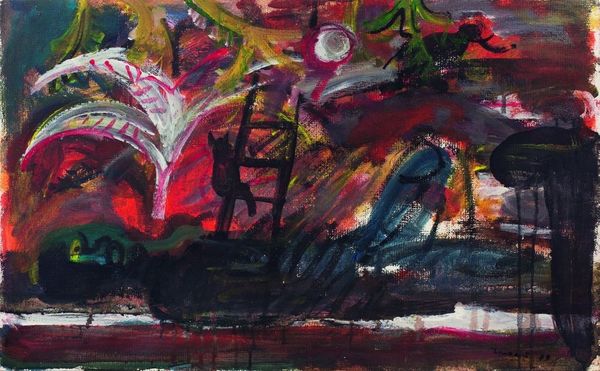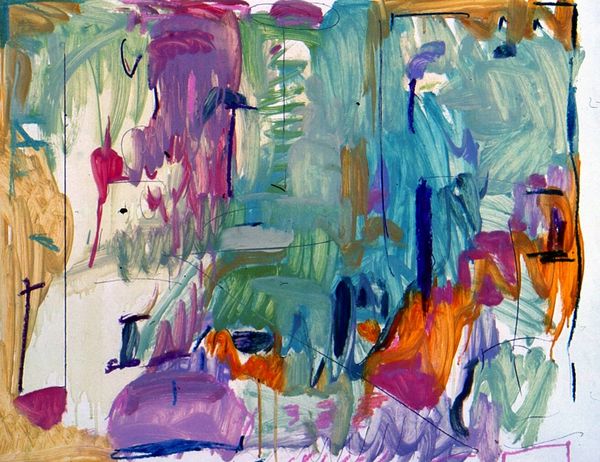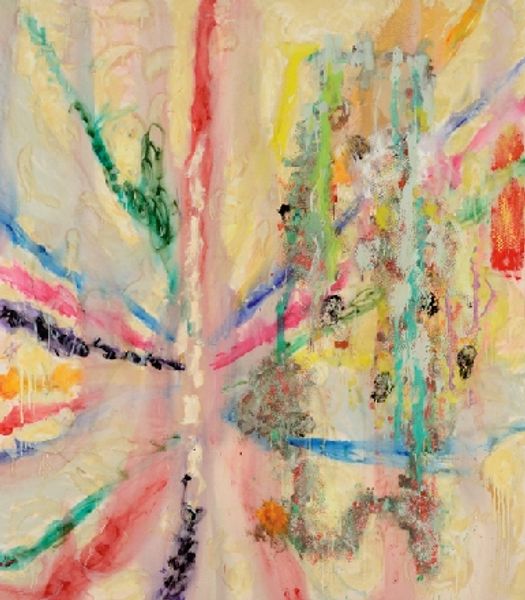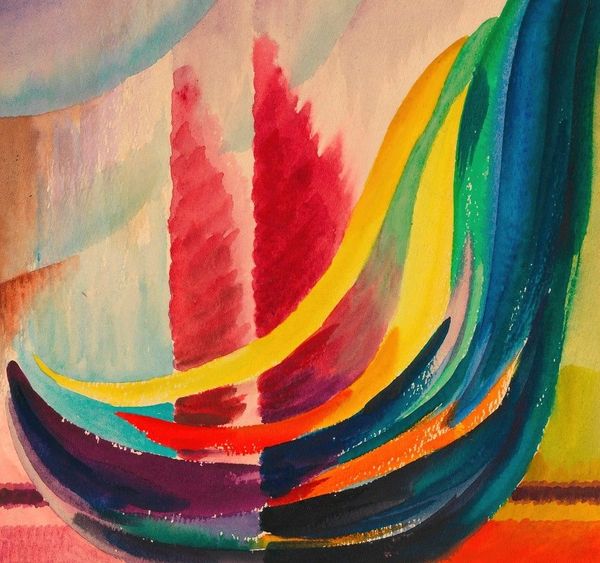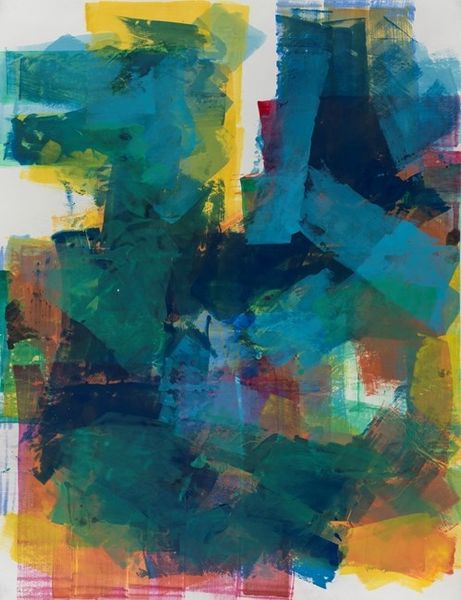
Dimensions: support: 584 x 1549 mm frame: 811 x 1772 x 100 mm
Copyright: © The estate of Ivon Hitchens | CC-BY-NC-ND 4.0 DEED, Photo: Tate
Editor: This is Ivon Hitchens' "Arno No. 5," its date is unknown. The colorful oil on canvas strikes me as a landscape, but abstracted through bold strokes. What materials might Hitchens have experimented with to achieve this effect? Curator: Consider the materiality of the paint itself. The thick application and varied brushstrokes suggest a process of layering and reworking. How does this focus on the physical act of painting challenge our conventional understanding of landscape art? Editor: I hadn't thought of it that way, focusing on the process instead of just the image. It really blurs the lines between representation and the pure physicality of the paint. Curator: Precisely. And what does that blurring tell us about Hitchens' relationship with both tradition and the evolving art market? Editor: It makes me appreciate the artist’s hand and labor in creating the work, and how it exists as an object. Thanks. Curator: And reminds us that art is always both product and process.
Comments
Join the conversation
Join millions of artists and users on Artera today and experience the ultimate creative platform.
tate 9 months ago
⋮
Hitchens’s moved to West Sussex from London in 1940 after his house was bombed in the Second World War. He continued to make work, often inspired the local landscape. This painting is the last in a series he made showing the River Rother and River Itchen. Hitchens chose the name ‘Arno’, the name of a river in Italy, to suggest that the work was a representation of nature, not a particular place. He claimed ‘any name will suffice for what is fundamentally an abstract idea’. Gallery label, November 2019
